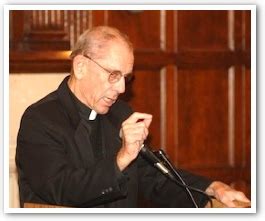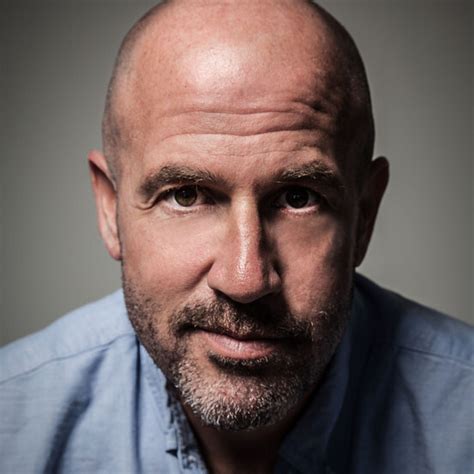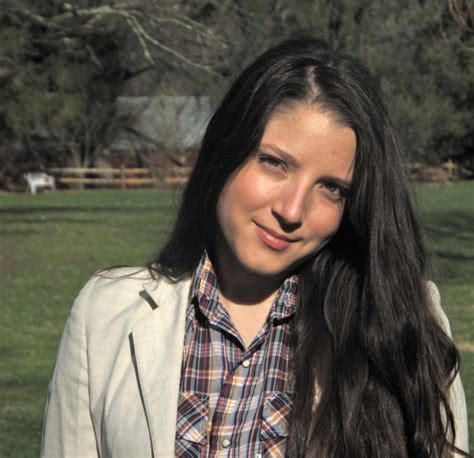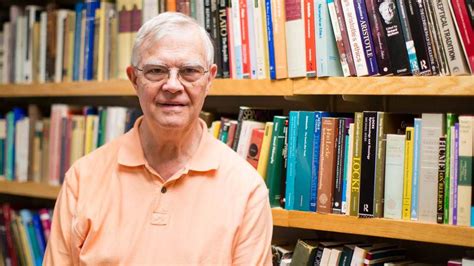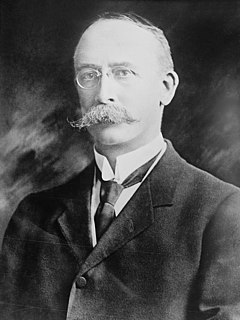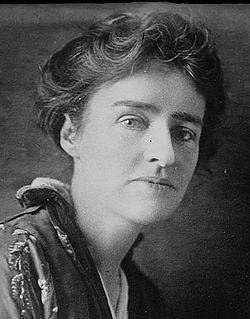Top 594 Plato And Aristotle Quotes & Sayings - Page 9
Explore popular Plato And Aristotle quotes.
Last updated on April 20, 2025.
Musick is certainly a very agreeable Entertainment, but if it would take the entire Possession of our Ears, if it would make us incapable of hearing Sense, if it would exclude Arts that have a much greater Tendency to the Refinement of human Nature; I must confess I would allow it no better Quarter than Plato has done, who banishes it out of his Common-wealth.
The supreme question about a work of art is out of how deep a life does it spring. Paintings of Moreau are paintings of ideas. The deepest poetry of Shelley, the words of Hamlet bring our mind into contact with the eternal wisdom; Plato's world of ideas. All the rest is the speculation of schoolboys for schoolboys.
I am a humanist because I think humanity can, with constant moral guidance, create reasonably decent societies. I think that young people who want to understand the world can profit from the works of Plato and Socrates, the behaviour of the three Thomases, Aquinas, More and Jefferson - the austere analyses of Immanuel Kant and the political leadership of Abraham Lincoln and Franklin Roosevelt.
He [Aristotle] pointed out that people who had become initiates in the various mystery religions were not required to learn any facts 'but to experience certain emotions and to be put in a certain disposition.' Hence his famous literary theory that tragedy effected a purification (katharsis) of the emotions of terror and pity that amounted to an experience of rebirth.
The light dove, in free flight cutting through the air the resistance of which it feels, could get the idea that it could do even better in airless space. Likewise, Plato abandoned the world of the senses because it posed so many hindrances for the understanding, and dared to go beyond it on the wings of the ideas, in the empty space of pure understanding.
I often think . . . that the bookstores that will save civilization are not online, nor on campuses, nor named Borders, Barnes & Noble, Dalton, or Crown. They are the used bookstores, in which, for a couple of hundred dollars, one can still find, with some diligence, the essential books of our culture, from the Bible and Shakespeare to Plato, Augustine, and Pascal.
I intend Deaths in Venice to contribute both to literary criticism and to philosophy. But it's not "strict philosophy" in the sense of arguing for specific theses. As I remark, there's a style of philosophy - present in writers from Plato to Rawls - that invites readers to consider a certain class of phenomena in a new way. In the book, I associate this, in particular, with my good friend, the eminent philosopher of science, Nancy Cartwright, who practices it extremely skilfully.
There have been many men who left behind them that which hundreds of years have not worn out. The earth has Socrates and Plato to this day. The world is richer yet by Moses and the old prophets than by the wisest statesmen. We are indebted to the past. We stand in the greatness of ages that are gone rather than in that of our own. But of how many of us shall it be said that, being dead, we yet speak?
As Aristotle wrote a long, long time ago, and I'm paraphrasing here, the goal is to avoid mediocrity by being prepared to try something and either failing miserably or triumphing grandly. Mediocrity is not about failing, and it's the opposite of doing. Mediocrity, in other words, is about not trying. The reason is achingly simple, and I know you've heard it a thousand times before: what doesn't kill you makes you stronger.
I don't mind the homosexuality. I understand it. Nevertheless, goddamn, I don't think you glorify it on public television, homosexuality, even more than you glorify whores. We all know we have weaknesses. But, goddammit, what do you think that does to kids? You know what happened to the Greeks! Homosexuality destroyed them. Sure, Aristotle was a homo. We all know that. So was Socrates.
Anyone can write five people trapped in a snowstorm. The question is how you get them into the snowstorm. It's hard to write a good play because it's hard to structure a plot. If you can think of it off the top of your head, so can the audience. To think of a plot that is, as Aristotle says, surprising and yet inevitable, is a lot, lot, lot of work.
We may say, in a broad way, that Greek philosophy down to Aristotle expresses the mentality appropriate to the City State; that Stoicism is appropriate to a cosmopolitan despotism; that stochastic philosophy is an intellectual expression of the Church as an organization; that philosophy since Descartes, or at any rate since Locke, tends to embody the prejudices of the commercial middle class; and that Marxism and Fascism are the philosophies appropriate to the modern industrial state.
Today you can buy the Dialogues of Plato for less than you would spend on a fifth of whiskey, or Gibbon's Decline and Fall of the Roman Empire for the price of a cheap shirt. You can buy a fair beginning of an education in any bookstore with a good stock of paperback books for less than you would spend on a week's supply of gasoline.
Roger_Bacon" title="Roger Bacon">Roger Bacon expressed a feeling which afterwards moved many minds, when he said that if he had the power he would burn all the works of the Stagirite, since the study of them was not simply loss of time, but multiplication of ignorance. Yet in spite of this outbreak every page is studded with citations from Aristotle, of whom he everywhere speaks in the highest admiration.
In those days it was possible for a Greek to flee from an over-abundant reality as though it were but the tricky scheming off the imagination-and to flee, not like Plato into the land of eternal ideas, into the workshop off the world-creator, feasting one's eyes on the unblemished unbreakable archetypes, but into the rigor mortis off the coldest emptiest concept off all, the concept of being.
It's happened many times before. Usually it results in an exceptional and gifted human. Some of the greatest figures in Earth's history were actually the product of humans and the Loric, including Buddha, Aristotle, Julius Ceasar, Alexander the Great, Genghis Khan, Leonardo da Vinci, Isaac Newton, Thomas Jefferson, and Albert Einstein... Aprodite, Apollo, Hermes, and Zeus were all real, and had one Loric parent
When has the world seen a phenomenon like this? a lonely uninstructed youth, coming from amid the moral darkness of Galilee, even more distinct from His age, and from every thing around Him, than a Plato would be rising up in some wild tribe in Oregon, assuming thus a position at the head of the world and maintaining it, for eighteen centuries, by the pure self-evidence of His life and doctrine.
When a thought of Plato becomes a thought to me,--when a truth that fired the soul of Pindar fires mine, time is no more. When I feel that we two meet in a perception, that our two souls are tinged with the same hue, and do as it were run into one, why should I measure degrees of latitude, why should I count Egyptian years?
Complaisance, though in itself it be scarce reckoned in the number of moral virtues, is that which gives a lustre to every talent a man can be possessed of. It was Plato's advice to an unpolished writer that he should sacrifice to the graces. In the same manner I would advise every man of learning, who would not appear in the world a mere scholar or philosopher, to make himself master of the social virtue which I have here mentioned.
The theory of social contracts extends as far back as Plato. However, it was the great 18th century social philosophers John Locke, Thomas Hobbes, and Jean-Jacques Rousseau who brought the concept of a social contract between citizens and governments sharply into political thinking, paving the way for popular democracy and constitutional republicanism.
I'm happy to have interns at The Weekly Standard and happy to have readers of The Weekly Standard, but if you all tell me that you were busy reading Plato and [Lev] Tolstoy and playing violin in the orchestra, I'd say that was great. I wouldn't tell you to take time out from that to get involved in political journalism.
We were brought up in a world which was based on Aristotle. Science-wise and everything, that's really quite exciting and you learn a lot. There was one problem: there were parallel realities. And in a parallel reality, there's always one reality that's the prime and the second is always a secondary. And everything's a reflection of something else.
And when he [the author of the universe] had compounded the whole, he divided it up into as many souls as there are stars, and allotted each soul to a star. And mounting them on their stars, as if on chariots, he showed them the nature of the universe and told them the laws of their destiny. - "Timaeus" by Plato 427-347 B.C.
Conservatism, we are told, is out-of-date. This charge is preposterous and we ought to boldly say so. The laws of God, and of nature, have no dateline. These principles are derived from the nature of man, and from the truths that God has revealed about His creation. To suggest that the Conservative philosophy is out of date is akin to saying that the Golden Rule, or the Ten Commandments or Aristotle's Politics are out of date.
The Christian priesthood, finding the doctrines of Christ leveled to every understanding, and too plain to need explanation, saw, in the mysticism of Plato, materials with which they might build up an artificial system which might, from it's indistinctness, admit everlasting controversy, give employment for their order, and introduce it to profit, power and pre-eminence.
This missing science of heredity, this unworked mine of knowledge on the borderland of biology and anthropology, which for all practical purposes is as unworked now as it was in the days of Plato, is, in simple truth, ten times more important to humanity than all the chemistry and physics, all the technical and indsutrial science that ever has been or ever will be discovered.
Plato used the dialogue format because the exchange of views, the posing and answering of questions, showed that understanding is a living, dynamic process. He distrusted writing because the settled character of the written word makes it look as if truth can be fixed and made to stand still. It is worth remembering that this greatest advocate of the objective reality of truth also believed that our access to that truth was sustained in reasoned discussion.
An interlude of false innocence has passed. Today, as we enter the post-photographic era, we must face once again the ineradicable fragility of our ontological distinctions between the imaginary and the real, and the tragic elusiveness of the Cartesian dream. We have indeed learnt to fix the shadows, but not to secure their meanings or to stabilize their truth values; they still flicker on the walls of Plato's cave.
Art is the distillate of life, the winnowed result of the experience of a people, the record of the joyous adventure of the creative spirit in us toward a higher world; a world in which all ideas, thoughts, and forms are pure and beautiful and completely clear, the world Plato held to be perfect and eternal. All works that have in them an element of joy are records of this adventure.
To saya man is fallen in love,or that he is deeply in love,or up to the ears in love,and sometimes even over head and ears in it,carries an idiomatical kind of implication, that love is a thing below a man:this is recurring again to Plato's opinion, which, with all his divinityship,I hold to be damnable and heretical:and so much for that. Let love therefore be what it will,my uncleToby fell into it.
The error which underlies the very existence of this debate is that there is some kind of perfect Platonic form of the computer language, which some real languages reflect more perfectly than others. Plato was brilliant for his time but reality is not expressable in terms of arbitrary visions of perfection, and furthermore, one programmer's ideal is often another's hell.
In the most general terms, the Enlightenment goes back to Plato's belief that truth and beauty and goodness are connected; that truth and beauty, disseminated widely, will sooner or later lead to goodness. (While we're making at effort at truth and goodness, beauty reminds us what we're hold out for.)
Plato spoke of the necessity for divine madness in the poet. It is a frightening thing to open oneself to this strange and dark side of the divine; it means letting go our sane self control, that control which gives us the illusion of safety. But safety is only an illusion, and letting it go is part of listening to the silence, and to the spirit.
Aristotle said that philosophy begins in wonder. I believe it also ends in wonder. The ultimate way in which we relate to the world as something sacred is by renewing our sense of wonder. That's why I'm so opposed to the kind of miracle-mongering we find in both new-age and old-age religion. We're attracted to pseudomiracles only because we've ceased to wonder at the world, at how amazing it is.
Teaching Plato in Palestine shows how philosophical thinking can illuminate important topics-in particular, the problem of finding ways to engage people with opposed ideologies in fruitful debate. The lively narratives, based on the author's experiences of working with various groups interested in using philosophical tools to clarify their thought and action, will engage a wide range of readers.
Plato--who may have understood better what forms the mind of man than do some of our contemporaries who want their children exposed only to "real" people and everyday events--knew what intellectual experience made for true humanity. He suggested that the future citizens of his ideal republic begin their literary education with the telling of myths, rather than with mere facts or so-called rational teachings.
Excellent teachers showered on to us like meteors: Biology teachers holding up human brains, English teachers inspiring us with a personal ideological fierceness about Tolstoy and Plato, Art teachers leading us through the slums of Boston, then back to the easel to hurl public school gouache with social awareness and fury.
You should rather suppose that those are involved in worthwhile duties who wish to have daily as their closest friends Zeno, Pythagoras, Democritus and all the other high priests of liberal studies, and Aristotle and Theophrastus. None of these will be too busy to see you, none of these will not send his visitor away happier and more devoted to himself, none of these will allow anyone to depart empty-handed. They are at home to all mortals by night and by day.
There is one mind common to all individual men. Every man is an inlet to the same and to all of the same. He that is once admitted to the right of reason is made a freeman of the whole estate. What Plato has thought, he may think; what a saint has felt, he may feel; what at any time has befallen any man, he can understand. Who hath access to this universal mind is a party to all that is or can be done, for this is the only and sovereign agent
And when with excellent Microscopes I discern in otherwise invisible Objects the Inimitable Subtlety of Nature's Curious Workmanship; And when, in a word, by the help of Anatomicall Knives, and the light of Chymicall Furnaces, I study the Book of Nature, and consult the Glosses of Aristotle, Epicurus, Paracelsus, Harvey, Helmont, and other learn'd Expositors of that instructive Volumne; I find my self oftentimes reduc'd to exclaim with the Psalmist, How manifold are thy works, O Lord? In wisdom hast thou made them all.
That is why I think, in defiance of Plato, that there is at once error and vulgarity in saying that poetry is a lie, except in the sense that Cocteau wrote one day: I am a lie who always tells the truth. The only poetry which lies purely and simply is academic, pseudo-classical, conceptually repetitive poetry, and it is not poetry.
There have been hermaphrodites around forever, Cal. Forever. Plato said that the original human being was a hermaphrodite. Did you know that? The original person was two halves, one male, one female. Then these got separated. That's why everybody's always searching for their other half. Except for us. We've got both halves already.
The power of understanding symbols, i.e. of regarding everything about a sense-datum as irrelevant except a certain form that it embodies, is the most characteristic mental trait of mankind. It issues in an unconscious, spontaneous process of abstraction, which goes on all the time in the human mind: a process of recognizing the concept in any configuration given to experience, and forming a conception accordingly. That is the real sense of Aristotle's definition of Man as "the rational animal".
What libraries give you is all three tenses - the past tense - the present tense in which we live and the future that we can only imagine. These places have teachers who are living and dead and we are lucky to have them. If I sit here and read Aristotle, he is speaking to me across a thousand years - more than a thousand years. That sense that I am in the company of the great greatest people who ever lived is a humbling experience but a liberating experience.
Most impediments to scientific understanding are conceptual locks, not factual lacks. Most difficult to dislodge are those biases that escape our scrutiny because they seem so obviously, even ineluctably, just. We know ourselves best and tend to view other creatures as mirrors of our own constitution and social arrangements. ( Aristotle , and nearly two millennia of successors, designated the large bee that leads the swarm as a king.
If you're neurotic and you think, I'm not where I deserve to be or my mother didn't love me, or blah, blah, blah, that lie, that neurotic vision, takes over your life and you're plagued by it 'til it's cleansed. In a play, at the end of the play, the lie is revealed. [T]he better the play is, the more surprising and inevitable the lie is, as Aristotle told us. Plays are about lies.
At a turbulent public meeting once I lost my temper and said some harsh and sarcastic things. The proposal I was supporting was promptly defeated. My father who was there, said nothing, but that night, on my pillow I found a marked passage from Aristotle: Anybody can become angry--that is easy, but to be angry with the right person and to the right degree and at the right time and for the right purpose, and in the right way -- that is not within everybody's power and is not easy.
As Aristotle said, 'Excellence is a habit.' I would say furthermore that excellence is made constant through the feeling that comes right after one has completed a work which he himself finds undeniably awe-inspiring. He only wants to relax until he's ready to renew such a feeling all over again because to him, all else has become absolutely trivial.
Certain characteristics of the subject are clear. To begin with, we do not in this subject deal with particular things or particular properties: we deal formally with what can be said about any thing or any property. We are prepared to say that one and one are two, but not that Socrates and Plato are two.
Aeschylus and Plato are remembered today long after the triumphs of Imperial Athens are gone. Dante outlived the ambitions of thirteenth century Florence. Goethe stands serenely above the politics of Germany, and I am certain that after the dust of centuries has passed over cities, we too will be remembered not for victories or defeats in battle or in politics, but for our contribution to the human spirit.
One can't help thinking, Daddy, what a colourless life a man is forced to lead, when one reflects that chiffon and Venetian point and hand embroidery and Irish crochet are to him mere empty words. Whereas a woman- whether she is interested in babies or microbes or husbands or poetry or servants or parallelograms or gardens or Plato or bridge- is fundamentally and always interested in clothes.
God knows; I won't be an Oxford don anyhow. I'll be a poet, a writer, a dramatist. Somehow or other I'll be famous, and if not famous, I'll be notorious. Or perhaps I'll lead the life of pleasure for a time and then—who knows?—rest and do nothing. What does Plato say is the highest end that man can attain here below? To sit down and contemplate the good. Perhaps that will be the end of me too.







